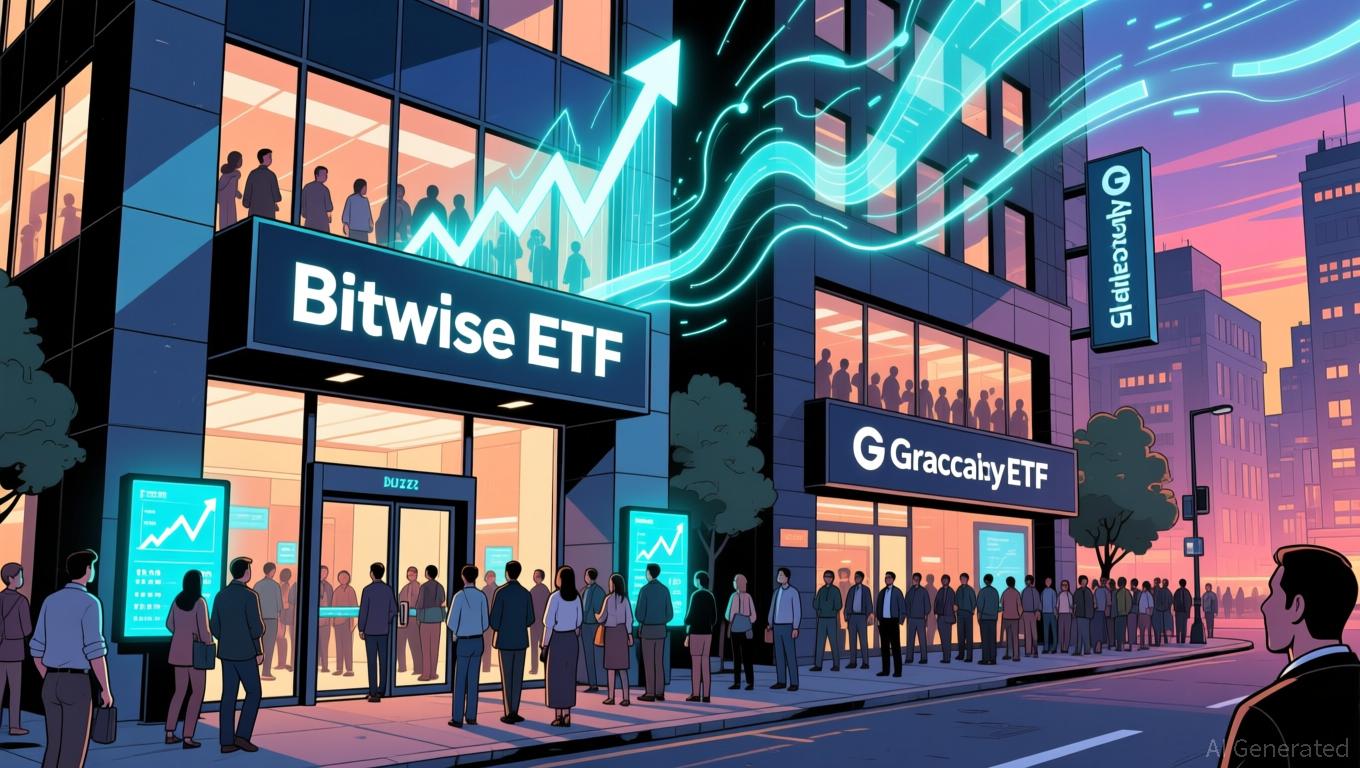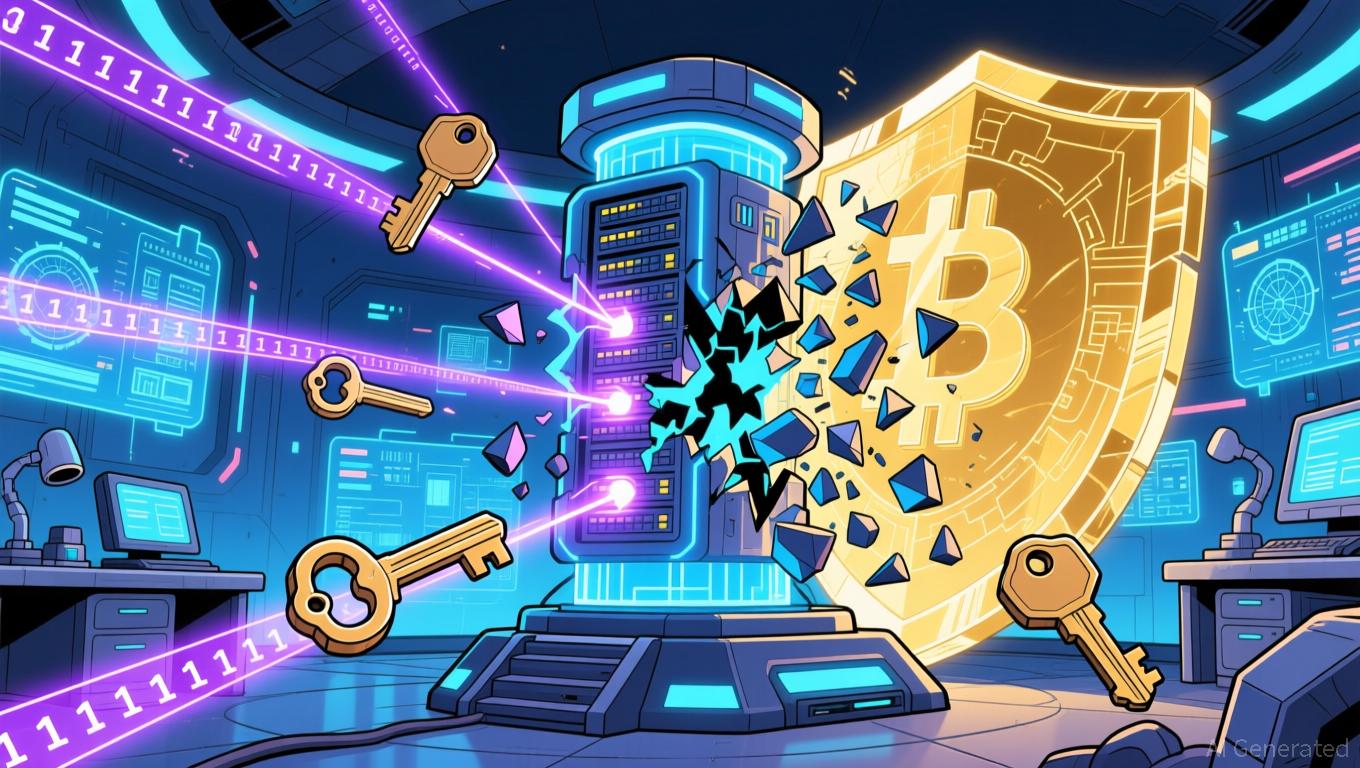Solana Latest Updates: Bitwise's Solana ETF Overtakes Grayscale by Offering Staking and Reduced Fees
- Bitwise's Solana ETF (BSOL) attracted $580M in three weeks, outpacing Grayscale's $24.4M inflows for its competing fund. - BSOL's 0.20% fee and staking integration differentiate it, enabling yield generation on Solana holdings for investors. - The fund's 14-day consecutive inflows highlight institutional confidence, supported by a $222.9M seed investment versus Grayscale's $102.7M. - Growing institutional adoption of crypto-native products signals shifting investor strategies toward blockchain exposure t
The Bitwise
The fund has shown notable strength, with

Experts credit BSOL's rapid growth to its attractive fee model and unique features. The ETF charges a 0.20% expense ratio, which is well below the industry norm, and incorporates a staking feature that enables investors to earn returns on their Solana assets. "These elements combine traditional asset management with the benefits of on-chain staking, making BSOL an appealing option for both novice and experienced investors," noted one market analyst.
BSOL's momentum has also benefited from favorable market trends. Even with Solana's price fluctuations, the blockchain has captured the attention of Wall Street, with BSOL providing a liquid entry point for institutional funds. At the same time,
Bitwise's strategic approach seems to be yielding results. By tapping into the rising popularity of crypto-focused investment products, the company has taken advantage of a market eager for diversified access to high-performing blockchains. As the ETF market continues to develop, BSOL's strong early performance points to a changing landscape in how traditional investors approach digital assets.
Disclaimer: The content of this article solely reflects the author's opinion and does not represent the platform in any capacity. This article is not intended to serve as a reference for making investment decisions.
You may also like
Buterin: Quantum Computing May Undermine Confidence in Crypto by 2028
- Ethereum co-founder Vitalik Buterin warns quantum computing could break Bitcoin/Ethereum's ECC security by 2028, enabling private key theft. - Quantum-resistant cryptography migration is urgent as tech giants advance 1000s-qubit systems, with ECC-breaking machines expected by 2030. - Industry faces dual challenges: developing post-quantum algorithms while maintaining blockchain functionality during complex decentralized upgrades. - Buterin urges accelerated global collaboration, highlighting that delayed

Pi Network's Journey: Evolving from a Community Movement to an International Travel Platform
- Pi Network launches Pitogo Testnet token, enabling travel bookings via decentralized platform to expand real-world utility. - Over 770,000 Pi coins migrated to mainnet in 24 hours, signaling readiness for broader applications ahead of v24.1.0 protocol upgrade. - MiCA-compliant whitepaper reveals EU market entry plans, positioning Pi as non-custodial layer-1 crypto aligned with global regulatory standards. - Ecosystem advances include Pi App Studio upgrades and Sesame Exchange airdrops, accelerating devel

Bitcoin News Update: Hayes Moves Crypto Holdings to Zcash, Anticipates Surge Fueled by Privacy
- Arthur Hayes transferred $2.5M in ETH/ENA to institutional market makers, sparking speculation about Zcash (ZEC) accumulation ahead of Bitcoin's 25% decline. - He advocates ZEC > XRP , forecasting $10k-$20k prices, while attributing BTC's slump to U.S. dollar liquidity contraction rather than macroeconomic shifts. - Market volatility pushed Fear & Greed Index to "extreme fear," yet Hayes predicts 2026 U.S. midterms-driven liquidity will reignite Bitcoin amid $500B global central bank injections. - Zcash'

Ethereum Updates Today: The Fall of Ethereum DAT Highlights the Vulnerability of Crypto's Institutional Aspirations
- Ethereum's $1B DAT project collapsed, refunding $200M amid crypto market volatility and regulatory uncertainty. - The initiative aimed to bridge traditional finance and crypto but reversed due to risk aversion and macroeconomic pressures. - Ethereum prices dipped below $3,100 while Bitcoin fell below $91,000, reflecting broader market turbulence and liquidity challenges. - Project creators may relaunch DAT if conditions stabilize, emphasizing risk management over short-term crypto ambitions.
